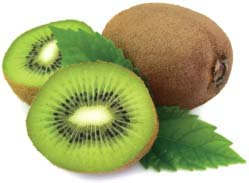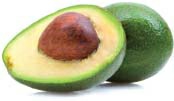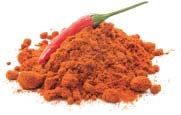The Healthy Green Drink Diet (9 page)
Read The Healthy Green Drink Diet Online
Authors: Jason Manheim




lemon
limes
mango
nectarine
orange
papaya
pear
peach
persimmon
pineapple
plums
raspberries
star fruit
strawberries
tangerine
tomato
watermelon

Adding “Superfoods”
These aren’t your typical superfoods so don’t panic, we’re not going to blend a fresh-caught wild
Alaskan salmon with a head of broccoli. These are “extras” that are packed with nutrition and are
perfect for blending (or juicing). Whether adding healthy fats, fibrous seeds, or vitamin-dense berries, the
green drink is an easy way to incorporate them when you otherwise might not have.
Some of these are quite expensive and some require additional time spent cultivating, so use as sparingly
or as much as you see fit.
Acai Berries
The acai berry (pronounced “ah-sigh-ee”) comes from the acai palm and is native to Central and South
America. I’m sure you have heard of them, though, they’re all the rage in the health food circuit at the


moment. They’re extremely high in antioxidants like anthocyanins and flavonoids. Anthocyanins are what
gives fruit and vegetables those darker blue, red, and purple hues and help the body fight free radicals and
defend against aging, heart disease, and cancer. Try to find these either whole or mashed in the frozen
section of your local health food store. Skip the juices and tonics as they’re usually full of other additives.
Almond Butter
Almonds are high in monounsaturated fats, which promote lower LDL cholesterol and reduce the risk of
heart disease, lower blood pressure, and control blood sugar. Not to mention they’re delicious and add a
light nutty flavor and creamy texture to your green smoothies. Look for raw, salt-free varieties.
Aloe Vera
Aloe vera is a succulent plant commonly used as a topical agent to treat minor burns. Its immune—
stimulating effects don’t stop there, though, it can reduce symptoms associated with psoriasis and eczema,
and can be a fantastic way to detox the colon. However, be careful how much you add because it’s also a
natural laxative; you want to detox, not spend hours stuck to the toilet. As an added bonus, it’s one of the
few plant sources of vitamin B12, so, vegans, take note. Try growing your own plant as the nutrition is
better or look for pure (meat included, sugar-free) juice at your local health food store.
Avocado
Often called the “food of the gods,” and for good reason. It’s one of the healthiest sources of
monounsaturated fats you can eat. When added to your green drink, it can increase absorption of the
carotenoid antioxidants lycopene and beta-carotene up to 300 percent. It’s also known for its anti-inflammatory properties. Try adding some to your green smoothies for a thicker, more flavorful drink.
Bee Pollen
Bee pollen is a mixture of flower pollen, nectar, and enzymes secreted by bees. It’s commonly used by
athletes for increasing energy, stamina, and endurance. Long-term effects are weight loss, enhancement of
the immune system, improved sexual function, and seasonal allergy relief. Try buying bee pollen gathered
from multiple sources as it increases the nutritional benefit and the allergy relief properties. And of
course, if you’re sensitive to pollens, test the waters first before jumping straight in.
Cayenne Pepper
Not only does it add flavor and heat to your drink, capsaicin, the substance responsible for the spiciness,
can have pain-reducing effects, improve cardiovascular health, prevent ulcers, and clear up those nasal
passages. Be very careful, though—a shaky hand can leave you submerging your head in a bucket of ice
water.

Chocolate (Raw)
Stay away from the checkout stand, you won’t find the kind of chocolate I’m talking about there. This
chocolate is raw and additive-and sweetener-free. It’s rather expensive but is high in antioxidants and
can lower blood pressure. The most important benefit? Taste! Add a few organic raw cocoa nibs to your
shake with a slice or two of avocado and you’ll have yourself a very tasty, nutritious treat.
Coconut (Oil, Milk, Water, Meat)
The coconut is one of nature’s miracle foods. It’s used for skin care as a moisturizer, to prevent heart
disease, for utilizing lauric acid which lowers blood pressure and cholesterol levels, for weight loss by
increasing the body's metabolism, and so much more. It’s even used in hospitals on patients with digestive
problems and is a primary ingredient in most infant formulas. I like adding fresh young coconut flesh and
water to my green smoothies whenever possible. If you’re adding coconut oil, let it melt first before
adding it to the blender; that way you won’t get the waxy film and chunkiness you get from the solid oil.
Flaxseed (Oil, Seeds)
Flaxseeds are high in alpha-linolenic acid (ALA), an essential omega-3 fatty acid which is a precursor to
the much-touted omega-3s found in fish oils (ePA). The body naturally converts ALA to ePA, so flaxseed
is a great alternative to fish oil, especially for vegans. omega-3s have been known to have incredible anti-inflammatory properties; protect bone health; protect against heart disease, cancer, and diabetes; and
prevent and control high blood pressure. Flaxseed oil goes rancid fast, so buy only the fresh, refrigerated
bottles at your local health food store. You can also use a coffee grinder to grind your own whole
flaxseeds, adding a textural difference to your smoothies as well.
Garlic
Garlic contains many sulfur compounds that promote cardiovascular health, prevent blood clotting, lower
blood pressure, and have tremendous antibacterial and antiviral benefits. It has also been shown to